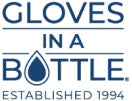
What is a Barrier Cream?
Share
In industrial and general applications, barrier creams are used to protect against cleaning compounds, solvents, acids, oils and other caustic substances. In the cosmetic industry, they are used prior to the application of foundations, makeup, skin toners and other caustic substances common to that industry. The overall efficacy of barrier creams to treat hand eczema and occupational contact dermatitis has been widely disputed.
While somewhat effective at protecting against many skin irritants, barrier creams have not been proven as effective as certified PPE (Personal Protective Equipment) and should never be used in place of PPE. There is also evidence that improper barrier cream use could cause a harmful rather than a beneficial effect.
Overall Effectiveness
Though commonly prescribed to treat a wide range of dermatological conditions, the efficacy of barrier creams remains disputed. They have not been demonstrated to be useful in treating hand eczema and according to the World Health Organization, they are not very effective at treating irritant contact dermatitis in nurses. The Great Ormond Street Hospital Manual of Children’s Nursing Practices 2012 book found that “disposable nappies are effective in drawing fluid away from the skin and can be changed less frequently in the absence of stools, making regular application of barrier creams unnecessary in most children.”
Common Problems with barrier creams
Common problems associated with commercial barrier creams include:
- Dry skin
- May cause mild itching, burning, or stinging in sensitive skin
- Acne
- Severe allergic reactions (rash; hives; difficulty breathing; tightness in the chest; swelling of the mouth, face, lips, or tongue)
Other Risk Factors with barrier creams
- Is usually hazardous if swallowed
- Is often excreted in the breast milk of pregnant women
- May cause dizziness or nausea
Alternatives
In recent years, many dermatologists have begun recommending shielding lotions as a better alternative
By bonding with the outer layer of skin, a shielding lotion simultaneously keeps out contaminants while sealing in natural oil and moisture. The result is a non-toxic, hypoallergenic natural moisturizer with skin protecting qualities. For more about shielding lotions, see Shielding Lotions.
